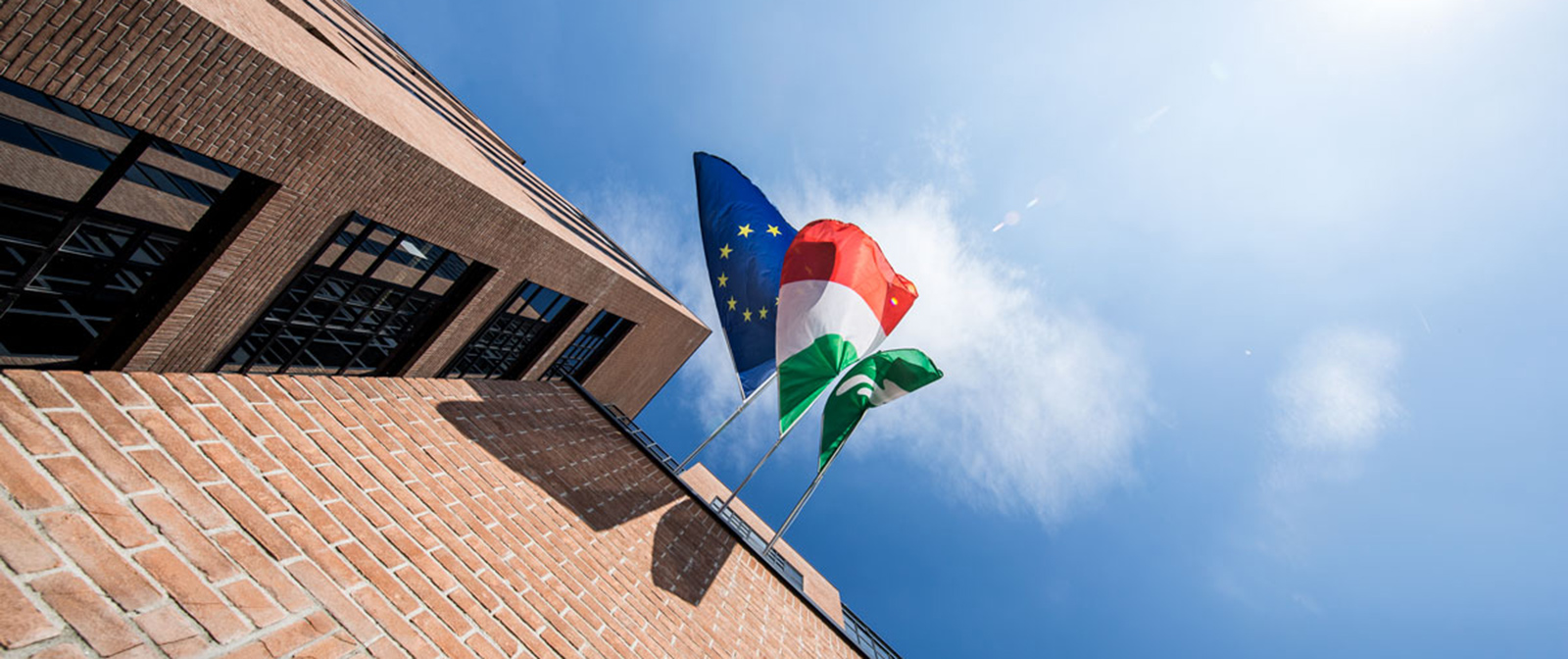
Conference Languages and Languages for Peace
Dec. 1 and 2 in a conference on a pressing topical issue
"Languages and Languages for Peace / Language and Languages for Peace" is the title of the conference to be held at IULM on Dec. 1 and 2, 2022. The aim of the international conference is to study the role of languages in promoting peace. This is an extremely broad topic that can be analyzed from a variety of perspectives and through the lens of different disciplines, from linguistics to history, from economics to geography, from art history to philosophy. Therefore, the conference has a distinctly multidisciplinary focus, aiming to bring together different perspectives and approaches.
Specifically, the conference will host papers that can be traced to five thematic areas:
- Peace, linguistic communication and translation
In the contemporary world, the theme of peace surfaces with great frequency in communication at all levels, in everyday life, in mass communication, in political and institutional communication, in the sphere of science, artistic expressions and popularization, etc. Therefore, the discursive construction of this theme constitutes an interesting object of linguistic investigation, shedding light on its codification and implementation in different spheres. Equally interesting for linguistic research is the analysis of language and languages in discourses aimed at promoting peace, building it through dialogue and persuasion, but also through founding documents that "constitute" peace as a given in relations between peoples
- Memory and history for peace
The peace/war relationship is one of the fundamental elements of contemporary history. Paradoxically, however, there is a huge disproportion of studies devoted to conflicts compared to those that deal with forms of peace research or the history of pacifist movements and experiences. Not only in the sphere of historical research and historiography but also in the dimension of memory, personal and collective, the imagery related to the war experience tends to be preponderant over that related to paths of peace or experiences of more or less pure pacifism.
This thematic area consists of several strands of analysis, reconstruction, and recovery of memories, relative to different areas and historical periods, that may arise from the peace/war dichotomy. It includes the analysis of forms of international and transnational relations as well as the interaction between different disciplinary fields focused on distinct forms of construction of collective imaginaries (not only the historical disciplines, but also those related to the world of philosophy, epistemology, geography, arts, history of religions, iconography, theater, cinema, ...).
- Peace, cooperation and environment
Fundamental to the promotion of a culture of peace are the areas of action reserved for the design of interventions to protect weak areas and safeguard diversity and the environment. In particular, the preservation of the environment and its resources-which, on the impetus of protest movements, is awakening collective consciousness around the problems of climate change, pollution and loss of biodiversity-should be understood as a culture of peace, as a need for the enhancement of specificities and an opportunity for knowledge of material and immaterial cultural elements.
- Multilingualism,territories and mobility
The promotion of multilingualism is a key factor in supporting intercultural dialogue and ensuring transnational communication while respecting cultural diversity. Multilingualism and language skills of individuals are a fundamental prerequisite for access to opportunities to travel to other countries for study, work and tourism. The resulting mobility plays a crucial role in openness and tolerance between countries and cultures, with new opportunities for employment, trade and mutual understanding.
- Literature and Positive Peace
Literature today seems to be a pathway to learning about democracy, and the theme of Positive Peace-though never named as such-constitutes the major turning point since the last decades of the twentieth century and has become definitively apparent with the beginning of the new millennium. Documenting reality and posing itself as a site of memory seems to be the dominant paradigm of contemporary literature that stands in defense of the ideals of democracy, sometimes even at the cost of the elision of conflicts and the reasons that gave rise to them. In fact, in the periods of war that have marked the history of the last two centuries, literature has produced works that, while speaking of war, antiphrastically praise peace. Within this framework, particular attention should be paid to the forms of literary engagement in contexts of crisis and the discussion of how the defense of democratic ideals is organized narratively.
The languages of the conference will be Italian, English and Spanish. Simultaneous interpretation will be provided among these languages. The conference will be held in Room 146, Room 613 (both located in IULM 6) and online.
Download the conference programhere.
The conference is organized by the Department of Humanities as part of the "Languages and Languages for Peace" project.
The event is open to citizenship. Participation is free of charge; citizens who would like to attend the event should register at this form.
All interested students should register through this form.
Streaming Directs
DAY 1 - https://go.iulm.it/peace-day1
DAY 1 - https://go.iulm.it/peace-613
DAY 2 - https://go.iulm.it/peace-day2

The "Languages and Languages for Peace" conference is part of the Badge of Honour* initiative.
( *To obtain the Badge of Honour, students must attend the conference in attendance, one day for Bachelor's students and two for Master's students)